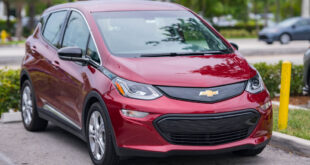Compare Electric Car Brands: Guide for 2025 Electric cars are transforming the automotive landscape, offering eco-friendly alternatives to traditional gas-powered vehicles. With numerous brands competing in the market, choosing the right electric car can be daunting. This guide provides an in-depth comparison of popular electric car brands, highlighting their unique features, pros, and cons to help you make an informed decision.
Key Factors to Consider When Comparing Electric Car Brands
- Range and Battery Life
- The distance an electric vehicle (EV) can travel on a single charge is a critical factor.
- Look for cars with a range that fits your daily needs and occasional long trips.
- Charging Infrastructure
- Evaluate the availability and compatibility of charging stations.
- Some brands, like Tesla, have dedicated charging networks, providing added convenience.
- Performance and Technology
- Acceleration, top speed, and handling vary across brands.
- Advanced technology features like autonomous driving, smartphone integration, and safety systems can enhance the driving experience.
- Price and Value
- Compare initial costs, tax incentives, and long-term savings.
- Consider additional costs like maintenance, insurance, and charging.
- Brand Reputation and Reliability
- Research customer reviews and expert ratings.
- Established brands often have a track record of reliability and quality.
Popular Electric Car Brands in 2025
1. Tesla
- Pros: Leading range, innovative features, and a robust Supercharger network.
- Cons: Premium pricing and mixed reviews on build quality.
- Notable Models: Model 3, Model Y, and the new Cybertruck.
2. Rivian
- Pros: Adventure-ready designs with impressive off-road capabilities.
- Cons: Limited availability and charging network.
- Notable Models: R1T and R1S.
3. Ford
- Pros: Iconic designs and affordability.
- Cons: Limited range compared to Tesla.
- Notable Models: Mustang Mach-E and F-150 Lightning.
4. Lucid Motors
- Pros: Exceptional luxury and cutting-edge technology.
- Cons: High price tag and limited production.
- Notable Models: Lucid Air.
5. Hyundai/Kia
- Pros: Affordable options with solid performance.
- Cons: Less innovation compared to premium brands.
- Notable Models: Hyundai Ioniq 5 and Kia EV6.
6. Volkswagen
- Pros: Global presence and a growing EV lineup.
- Cons: Average range and charging speed.
- Notable Models: ID.4 and ID.Buzz.
7. BMW
- Pros: Superior performance and luxury features.
- Cons: Higher pricing and limited charging options.
- Notable Models: iX and i4.
Top 10 Tips for Choosing the Right Electric Car
- Define Your Budget: Consider initial costs, incentives, and maintenance expenses.
- Assess Your Daily Range Needs: Choose a model that aligns with your commute and lifestyle.
- Research Charging Options: Check local charging infrastructure and home charging compatibility.
- Prioritize Safety Features: Look for models with advanced driver-assistance systems.
- Test Drive Multiple Models: Experience different brands to find your preference.
- Evaluate Resale Value: Opt for brands with a strong market reputation.
- Consider Warranty Options: Ensure battery and vehicle warranties cover your needs.
- Explore Incentives: Check government rebates and tax credits.
- Analyze Reviews: Read customer and expert reviews for insights.
- Plan for the Future: Factor in long-term reliability and software updates.
10 Frequently Asked Questions About Electric Cars
- How long do EV batteries last? EV batteries typically last 10-15 years or 100,000-200,000 miles.
- How much does it cost to charge an EV? Charging costs vary but are generally cheaper than fueling gas vehicles.
- Can I charge an EV at home? Yes, with a home charging station, you can charge your EV overnight.
- Are EVs suitable for long trips? Modern EVs with extended ranges and fast-charging options are ideal for long journeys.
- Do EVs require a lot of maintenance? EVs have fewer moving parts, resulting in lower maintenance costs.
- What happens if an EV runs out of charge? Roadside assistance or portable chargers can help in such situations.
- Are EVs environmentally friendly? Yes, they produce zero emissions and have a lower carbon footprint.
- How do EVs perform in cold weather? Cold weather can reduce battery efficiency, but modern EVs are designed to handle it.
- What is regenerative braking? It’s a feature that recovers energy during braking to recharge the battery.
- Which brand is the best for beginners? Brands like Tesla and Hyundai offer user-friendly options for first-time EV owners.
Conclusion
Choosing the right electric car brand requires careful consideration of factors like range, performance, price, and charging infrastructure. With advancements in technology and growing competition, the electric car market offers options to suit every need and budget.
Whether you prioritize luxury, affordability, or innovation, there’s an EV brand ready to meet your expectations. By understanding your needs and exploring available options, you can make an informed decision and enjoy the benefits of electric mobility.
 oto car insurance used car repair
oto car insurance used car repair
